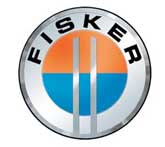
High-end electric car maker Fisker Automotive, which has had financial woes for months, announced meanwhile it was laying off 75% of its workforce, raising the prospect of defaulting on its US government loans.
Electric cars are still coming to market from luxury manufacturer, Tesla, and from major automakers such as General Motors, Nissan and others, but the outlook has become murkier.
Analysts are divided on the outlook, but few believe President Barack Obama's goal of getting a million electric cars on the market by 2015 will be met.
"It's not like people are clamouring for these vehicles," said Rebecca Lindland, analyst with Rebel Three Media and member of a committee studying barriers to electric car production for the National Academy of Sciences.
Lindland said her view is that Americans just don't see how an electric car can fit into their lifestyle. "Americans continue to be risk-averse in investing in new technology for cars," she said.
Mike VanNieuwkuyk of the research firm JD Power & Associates said more people are aware of the electric cars on the market but there are just a few consumers prepared to buy an electric car.
A report by JD Power and its partner LMC Automotive found battery-powered vehicles' share of US auto sales was just 0.08% in 2012 and predicts this will reach only 0.47% by 2015.Only about three percent in the survey said their next vehicle would be electrically powered.
VanNieuwkuyk said consumers are held back by a lack of plug-in charging stations, concerns about the range of the vehicle before it needs recharging and especially the high cost of these cars. He said that petrol-powered cars are improving enough to meet the needs of the consumer, without the price tag of electric cars.

Jason Kavanagh, engineering editor at the research firm Edmunds.com said recent surveys suggest pure electric vehicles are unlikely to get past one percent of the US market, even by 2040. The lack of range and long recharging times are key factors.
"Sitting around for eight hours waiting for your (Nissan) Leaf to charge up is not exactly a selling point," he said. "EVs have a sitting-on-your-butt factor that conventional cars do not."
"More importantly", said Kavanagh, "the US electric power system cannot support large numbers of electric vehicles which need constant charging.
"The US power grid is not capable of supporting that," he told AFP. "You would need a multitude of small nuclear power stations to support that volume of recharging."
Chevrolet cut production of its Volt last year amid soft demand and is reported to be working on a less expensive version. Toyota and Honda also scaled back plans for all-electric vehicles for the US market.
And Chrysler chief executive Sergio Marchionne said recently the company stands to lose US$10,000 on every battery-powered Fiat 500 it sells in California.
There are a few bright spots, however.

Tesla Motors posted its first-ever quarterly profit, of US$11m in the first quarter as revenues rose 83% from the prior quarter.
Tesla is banking on its Model S, which sells for upwards of US$60,000, by offering special financing and leasing deals with a guaranteed resale prices. The car, which has an estimated range of over 300km, was given a top rating by Consumer Reports.
Nissan has boosted sales of its all-electric Leaf to over 5,000 in the first quarter, overtaking the Chevrolet Volt, which has seen sales sputter.
Brett Smith, analyst at the University of Michigan's Centre for Automotive Research, said he is not surprised by the slow progress in the electric car market.
"There was an enormous electric vehicle hype," he said. "In a way that was good because it helped push the technology."
Smith said it is clear that battery-powered cars are not a near-term mainstream product but he still believes in the value of the technology.
"There is a pretty good chance something positive will come out of this," Smith told AFP.
"Whether or not we get a cost-competitive electric vehicle in the next 10 years, the good news is there is lot of development which crosses over to other vehicles," he added.
Kavanagh of Edmunds.com said hybrids are likely to benefit from the developments in battery-powered vehicles. Hybrids use a combination of petrol and electric power, and charge the batteries while driving.
"We're going to see a big jump in hybrids, which can take advantage of the infrastructure we have," he said.
Kavanagh said he expects hybrids may become more attractive in the coming years because they will become more capable in terms of range and more cost-effective in terms of running expenses.
Source: AFP via I-Net Bridge

For more than two decades, I-Net Bridge has been one of South Africa’s preferred electronic providers of innovative solutions, data of the highest calibre, reliable platforms and excellent supporting systems. Our products include workstations, web applications and data feeds packaged with in-depth news and powerful analytical tools empowering clients to make meaningful decisions.
We pride ourselves on our wide variety of in-house skills, encompassing multiple platforms and applications. These skills enable us to not only function as a first class facility, but also design, implement and support all our client needs at a level that confirms I-Net Bridge a leader in its field.
Go to: http://www.inet.co.za